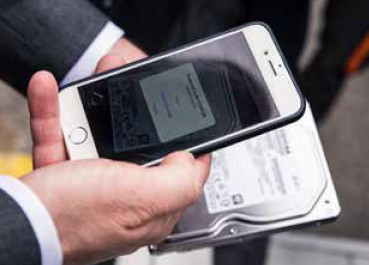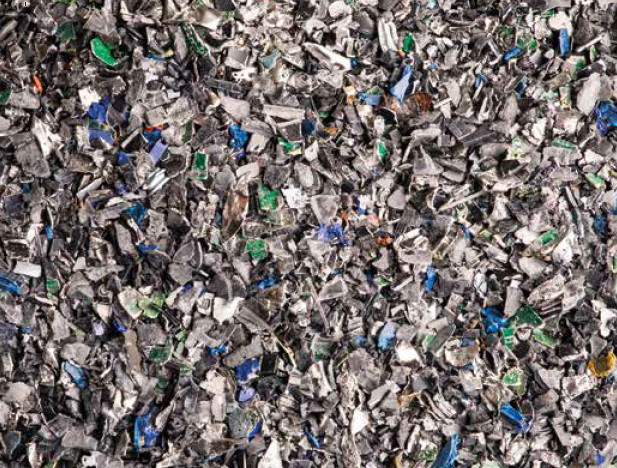Published: Monday August 07 2017Two entrepreneurs who created a service which shreds paper documents on-site for clients have developed techniques for destroying redundant hard drives, putting the information they hold beyond the reach of competitors and criminals.There is much talk in business of “the paperless office”, but as technology advances, more and more paper is used in the workplace – increasing the amount that needs to be destroyed to preserve confidentiality. That insight was what prompted Yarom Ophir and Siddik Apaydin to found Katana, a Swiss paper-shredding company that provides its services from trucks which do the job at clients’ businesses where they can monitor its destruction.“While working for a client in a previous business, we ended up using its office shredders all
Topics:
Perspectives Pictet considers the following as important: Cyber security, Data confidentiality, Data destruction, In Conversation With, Pictet Report, Pictet Report Summer 2017
This could be interesting, too:
Perspectives Pictet writes House View, October 2020
Perspectives Pictet writes Weekly View – Reality check
Perspectives Pictet writes Exceptional Swiss hospitality and haute cuisine
Jessica Martin writes On the ground in over 80 countries – neutral, impartial and independent
Two entrepreneurs who created a service which shreds paper documents on-site for clients have developed techniques for destroying redundant hard drives, putting the information they hold beyond the reach of competitors and criminals.
There is much talk in business of “the paperless office”, but as technology advances, more and more paper is used in the workplace – increasing the amount that needs to be destroyed to preserve confidentiality. That insight was what prompted Yarom Ophir and Siddik Apaydin to found Katana, a Swiss paper-shredding company that provides its services from trucks which do the job at clients’ businesses where they can monitor its destruction.
“While working for a client in a previous business, we ended up using its office shredders all day,” says Yarom Ophir, Katana’s chairman. “We started imagining a truck that would come and destroy paper at the office, and realised there was a market for such a service.”
“In pre-digital days, documents were produced on typewriters, perhaps with carbon paper to produce a second copy. Today, word-processed documents are cc-ed in emails to everybody working on a transaction, and they will often print them out – multiplying the amount of paper which needs to be shredded.”
The company started its paper-shredding operations in 2004 with a single truck that could destroy 800 kilogrammes of paper documents an hour, which is much faster than office shredders. It found a ready market among banks, insurers, government bodies and large multinational companies which produce large amounts of confidential documents. By 2009, it had expanded from Geneva to the whole of Switzerland, destroying 5,000 tonnes of paper in that year for more than a thousand customers.
But within a few years, clients began asking Katana whether it could shred the hard drives on their personal computers and servers. Since paper shredders were not strong enough to handle the job, the two co-founders launched Katana Digital which operates trucks capable of destroying data on CDs, DVD, back-up tapes and USB keys as well as hard drives on gadgets such as copiers.

“There is a popular belief that data can be removed from digital devices by deleting it or reformatting the hard drives,” says Siddik Apaydin, the company’s chief executive. “But that never takes the data away: it just overrides it by changing the binary code – and that can often be reversed. No specialist will say that erasing a hard drive is 100 per cent secure.”
Katana Digital has three processes for destroying digital data. One is degaussing which uses powerful magnets to permanently remove or randomise the data. The second drills a hole in the centre of a hard disc, which renders it completely unusable. The third physically shreds the hard drive by using special equipment inside the company’s trucks. Katana guarantees the total annihilation of data stored on hard drives.
Before processing, the hard drives are scanned to create a record of what has been destroyed for the client. And the whole operation is carried out at the client’s site, so that data cannot be stolen by taking it elsewhere. The process is filmed so that the client can watch and keep a copy of the footage if required. The materials used to make the hard drives – which include gold, copper, titanium and aluminium are recycled through reputable companies.

Today, the company has grown to 30 staff with 14 trucks, and plans to expand into the rest of Europe, where 500 million hard drives have been produced in the last five years and 80 million more are now added each year. It is targeting Benelux, Germany, Italy and France by the end of 2017, and moving on to Eastern Europe in 2019–20.
The latest concern which Katana is addressing is the growth of the internet of things – house-hold appliances with online links which can store data. “We started as luxury garbage-men destroying paper,” says Yarom Ophir. “But today we are a hi-tech business, working with high security people to preserve the confidentiality of data.”
“Henry Ford advised companies never to ask their customers what they want, because they would say a faster horse. We follow his advice by using our experience to try constantly to anticipate what the client needs, and then offer it better.”
